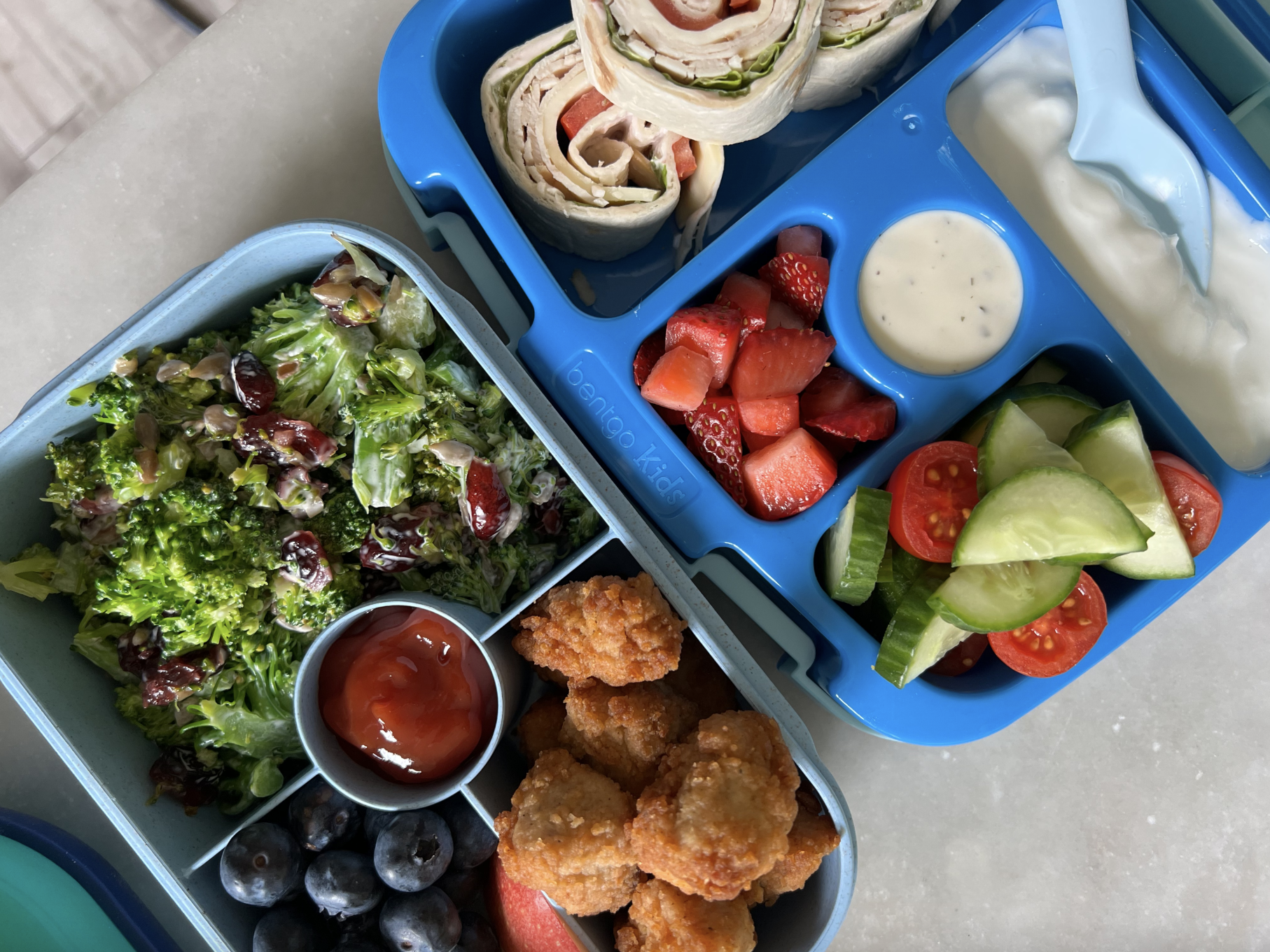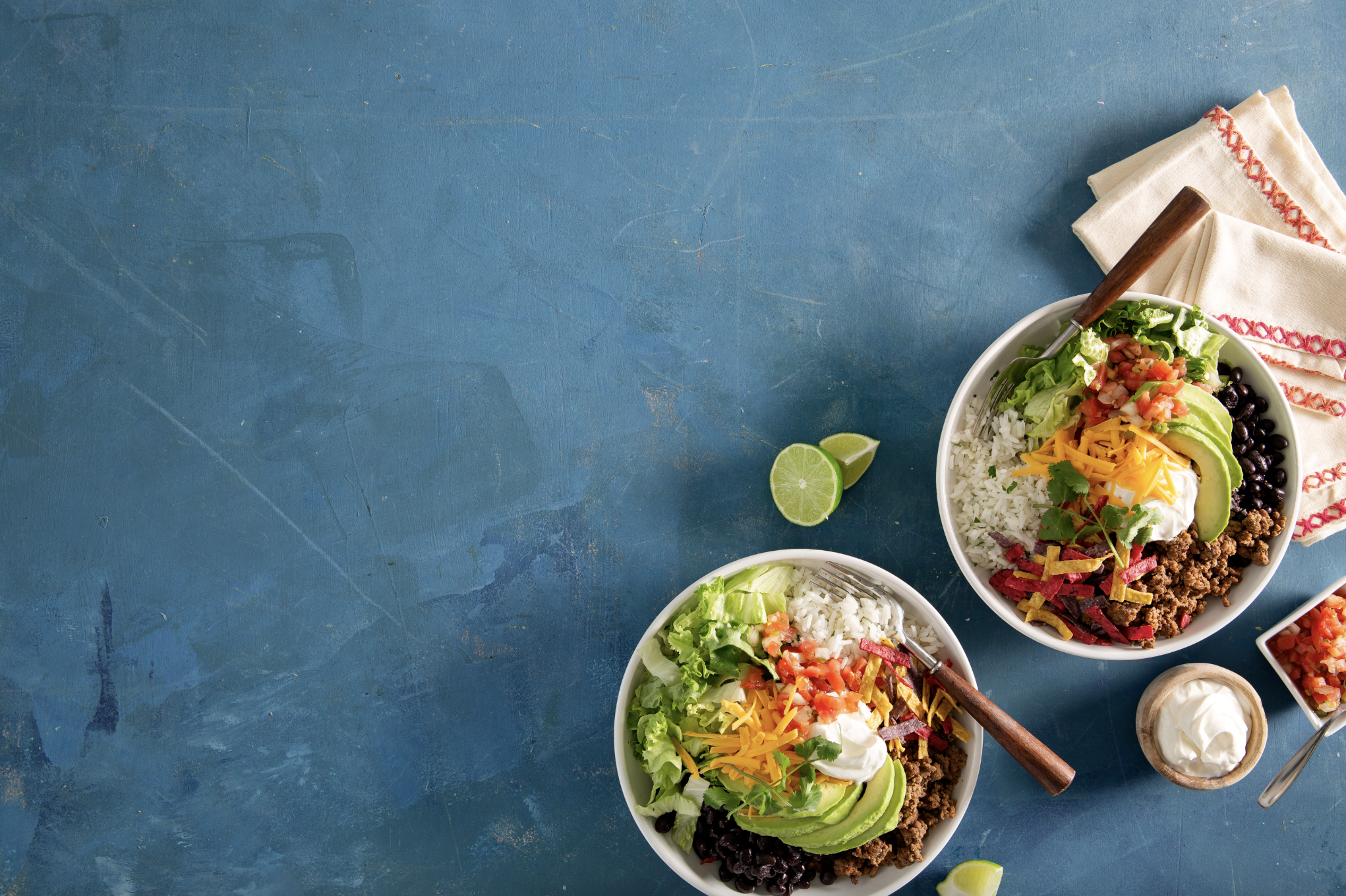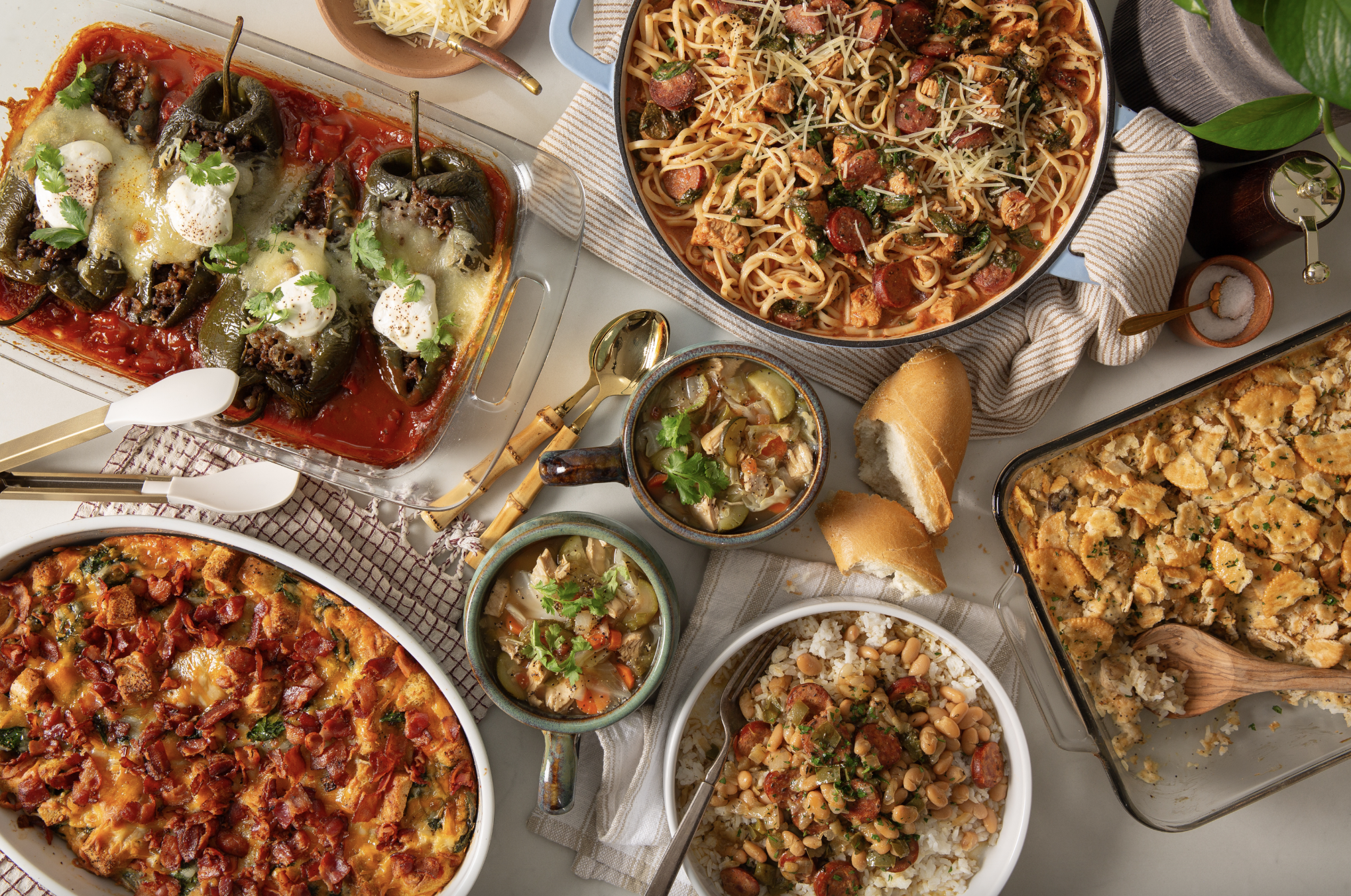Planning your meals for the week shouldn’t be a hassle. Discover how an effective meal plan for the week can help you slash prep time, reduce food costs, and incorporate wholesome, satisfying meals. Armed with practical strategies and adaptable recipes from eMeals, you’ll navigate your weekly grocery runs and cooking sessions like a pro — allowing more time for you to spend doing the things you love with the ones you love.
Key Takeaways
- Embrace meal planning to enjoy healthier eating habits to save time and money, with the added bonus of reducing stress by knowing what’s for dinner each night.
- Optimize your meal plan by evaluating your schedule and cooking skills, utilizing leftovers and multi-use ingredients, and balancing nutritious meals with occasional treats to keep it exciting.
- Expand your meal planning horizons with themed nights, seasonal ingredients, kid-friendly recipes, and adaptability for dietary restrictions for a varied and enjoyable eating experience.
The Benefits of Weekly Meal Planning

Meal planning is not only a beneficial habit, but it also involves making important changes to one’s lifestyle that can lead to healthier eating choices, cost savings, and reduced stress. By organizing meals in advance and having all the necessary ingredients on hand for quick preparation, individuals can take control of their dinner plans every night. This approach allows them to create balanced meal plans for the whole family. To get started on your weekly meal plan, check out eMeals variety of easy, healthy meal plans in the app!
The benefits of meal planning extend beyond just physical health. They include time and financial management advantages as well. The ability to prepare larger portions ahead of time and utilize leftovers on busy days throughout the week cuts down daily cooking times considerably. By allowing people to make smarter grocery shopping decisions – purchasing only what is required while optimizing ingredient usage across multiple dishes, families can save money on dinner every week.
A colorful and well-balanced meal plan enables individuals to enjoy diverse, nutritious meals, making mealtimes enjoyable as well as wholesome. Eating habits aside, the convenience provided by having a thought-out plan is an added advantage worth incorporating into one’s routine. It empowers individuals to follow through with their plans effortlessly while enjoying variety.
Building Your Customized Weekly Meal Plan

Having a personalized meal plan has numerous benefits, so now it’s time to create yours. This process includes:
- Evaluating your daily routine and cooking skills
- Utilizing leftovers and ingredients that can be used in multiple meals
- Striking a balance between nutrient-dense dishes and occasional indulgences for a well-rounded diet.
Excited to get started? Let’s dive into the details!
Assess Your Schedule and Cooking Abilities
The first step in embarking on a meal-planning journey is to evaluate your schedule and cooking abilities. While we may be enticed by elaborate dishes seen on TV, it’s important to consider if they are realistic options for our own busy lives. Knowing how much time you have available and understanding your skills in the kitchen will help create a manageable meal plan that won’t add stress.
A calendar can serve as an effective tool for visualizing meals and snacks throughout the week, allowing better time management while incorporating cooking into daily routines. When selecting recipes, choose ones you feel comfortable preparing but don’t shy away from trying something new. Utilize resources such as templates, online tutorials, or helpful apps like eMeals to aid in organizing meals and improving techniques.
To add variety to your menu, experiment with different flavors and ingredients beyond what you typically use. On days when there’s less free time, practice prepping meals ahead of time so when dinner rolls around it, becomes easier and more efficient. By following these tips, one can elevate their cooking skills while creating a happier lifestyle overall by minimizing food-related stress.
Incorporate Leftovers and Multi-Use Ingredients
An effective way to simplify the meal planning process is by utilizing leftovers and versatile ingredients. This approach not only saves time but also reduces expenses as it allows for multiple dishes to be created throughout the week using similar components.
Don’t discard leftover food too quickly. Instead, get creative with it! Leftovers can easily be transformed into delicious meals like chicken salad from roast chicken or pasta frittata from spaghetti. Don’t forget that proper storage is essential when dealing with leftovers – use containers with an airtight seal, label them clearly including the date they were stored, and ensure they reach room temperature before freezing.
Balance Nutrient-Rich Meals with Occasional Treats
One important aspect of meal planning is finding a balance between meals that are rich in nutrients and occasional indulgences. Nutrient-dense meals provide essential vitamins, minerals, and nutrients to support overall health and prevent diseases.
But everyone deserves some treats every now and then, right? The key is to prioritize nutrient-rich foods while using healthy cooking methods. Here are some suggestions for 100-200 calorie snacks or portions that can satisfy cravings without affecting appetite for nutritious meals.
- A small amount of nuts
- Fruit with a tablespoon of nut butter
- Hard-boiled eggs
- A serving of Greek yogurt with berries
- A small portion size dark chocolate
These options offer enjoyable treats that can make balanced eating more satisfying by including comforting food choices.
Themed Nights for Easy Meal Planning

One way to make meal planning more enjoyable and efficient is by incorporating themed nights into your routine. By assigning a theme for each night, you can easily generate ideas, make shopping lists, and add variety to your weekly meals.
Try adding some excitement to your meal planning with creative options like Asian Night, Pasta Night, or Grill + Chill Fridays. Mix things up with tasty recipes such as Vegetarian Japanese Udon Noodle Soup on Meatless Mondays or Chicken Enchiladas on Taco Tuesdays. eMeals has endless bonus collection and occasion plans filled with easy theme night ideas like Easy Asian Inspiration, Meatless Mondays, and more!
Seasonal Meal Ideas for Every Month
An exciting aspect of meal planning is incorporating seasonal ingredients and flavors, such as leafy greens. With every month comes a fresh selection of produce to add variety and nutrition to your delicious meals.
For instance:
- In May, take advantage of the succulent taste of tomatoes and grilled chicken in your dishes.
- Elevate your meal plans during October by including pumpkin, squash, and Brussels sprouts.
- Embrace January as an opportunity for lighter meals featuring both classic comfort foods.
Quick and Easy Dinner Ideas for Busy Weeknights

On busy weeknights when cooking seems like a daunting task, there are easy ways to save time. One option is utilizing pre-cooked items such as rotisserie chicken in your meals. This can be a lifesaver for those hectic evenings.
Another tip for saving time is preparing large quantities of meat and grains on Sundays that can be used throughout the rest of the week. To maximize efficiency, consider using instant pots or slow cookers which greatly reduce cooking time, allowing you more relaxation or family time.
Another way to save time on dinner is utilizing eMeals to take all meal planning and grocery shopping off your plate during those busy weeks. Simply choose your weekly meals in the app from a variety of meal plans, and eMeals will make the shopping list to send to grocery pickup or delivery at your favorite store.
Budget-Friendly Meal Options

Planning meals does not have to be a costly task. In fact, it can actually help you save money! By utilizing sale flyers from grocery stores, you can strategically choose discounted items and make your meals more affordable.
Another helpful tip is buying in bulk, which allows you to stock up on essential ingredients at lower prices. Keeping track of needed groceries also ensures that no necessary items are forgotten and reduces impulse spending.
Incorporating leftovers and using multi-use ingredients in your meal planning can stretch your budget while reducing food waste. So next time when planning for meals, remember these tips to save money without compromising the quality of food purchased from stores.
Meal Prep Tips for a Stress-Free Week
Efficient meal prepping is a great way to simplify your week and reduce stress. It involves preparing some or all of your meals in advance, giving you more time during the week. Imagine having your meals ready right when you need them!
To make the process smoother, create a prep schedule to plan ahead, organize your pantry effectively, rotate recipes regularly, and start with familiar dishes. You can also ensure success by using high-quality storage containers and keeping an adequately stocked pantry.
Adapting Meal Plans for Dietary Restrictions
Meal planning is a flexible process that can be tailored to fit various lifestyles and dietary restrictions, including veganism and gluten-free diets. Vegetarians can incorporate plant-based proteins like lentils, tofu, and eggs into their meals along with high-fiber ingredients. For those who cannot consume dairy products due to lactose intolerance, there are many delicious meal options such as Black Bean & Corn Quinoa or Stovetop Beef and Shells available for consideration. It’s important to remember that the goal of meal planning is to create a personalized plan that meets your specific dietary needs and preferences without sacrificing taste or variety.
Kid-Friendly Meal Ideas
As a parent, you know the difficulty of getting your children to eat a balanced diet. Luckily, meal planning can help simplify this task. Providing kids with diverse meals is important for maintaining their health while also making mealtimes enjoyable and appealing.
From hearty Ground Beef & Pasta Skillet to nutritious Healthy Oven-Fried Pork Chops, there are many kid-friendly options that are both healthy and easy to prepare. With some creativity, even vegetables can become irresistible by presenting them in different shapes, colors, and textures alongside their favorite dishes.
Breakfast and Lunch Meal Planning
While meal planning often focuses on dinner, it’s important not to neglect breakfast and lunch! Incorporating these meals into your plan can make mornings easier and lunches more satisfying. Remember that just like dinner, options vary in taste and variety at all mealtimes including breakfast and lunch! eMeals provides breakfast and lunch plans to add onto your dinner subscription to ensure all your meals are healthy and balanced throughout the day.
Grocery Shopping Tips for Efficient Meal Planning
Mastering the skill of grocery shopping can greatly improve your meal-planning efforts. By utilizing sales flyers and coupons at the store, you can strategically choose discounted items to make your meals more budget-friendly.
Maintaining a running list of necessary food items will ensure that nothing is forgotten when it comes time to shop. Plus, using delivery services for groceries can help save valuable time! These services allow for quicker and easier shopping, giving you more time to focus on perfecting your meal plans and spending time with family.
Meal Planning Resources and Tools
Whether you’re just starting out with meal planning or have been doing it for a while, there are plenty of resources and tools to help create and stick to an effective meal plan.
For those who follow specific dietary guidelines, there are also specialized meal planning serices and apps like eMeals that cater to restrictions such as veganism or gluten-free diets. And let’s not overlook the support found in online communities where individuals can share valuable tips and receive encouragement from others on their own meal-planning journey.
Summary
Implementing a meal plan is an effective and practical way to transform your lifestyle. It can save you money, reduce stress, and promote healthier eating habits. By evaluating your schedule and cooking skills, incorporating leftovers and versatile ingredients, as well as finding the right balance between nutritious meals and occasional indulgences, you can personalize a meal plan that suits your needs perfectly. Give it a try today! Perhaps meal planning with eMeals will be the secret ingredient for a happier, less stressful life.
Frequently Asked Questions
How do I plan a menu for a week?
When planning a menu for a week, give yourself time to plan, check what ingredients you have, include favorite meals, use up leftovers, cook in bulk, and make your ingredients work. Also, see what you already have, write down your meals and recipes, consider your time, plan to use leftovers, make a grocery list, and buy a mix of fresh, frozen, and shelf-stable items.
How do I organize my food for the week?
Effective meal planning for the week involves several steps, beginning with checking your schedule and inventory of pantry and freezer items. Next, select recipes that appeal to you or fit into any dietary restrictions. Use a planner or calendar to map out which meals will be eaten on each day. Then create a grocery list based on the ingredients needed for those chosen dishes before heading out shopping.
How can meal planning help me maintain a healthy diet?
Effective meal planning can aid in the maintenance of a nutritious diet by enabling individuals to organize their meals with an emphasis on incorporating whole grains, fruits, vegetables, lean proteins and healthy fats. This structure ensures that all essential nutrients are included for overall health.
Can meal planning really save me time and money?
Planning your meals ahead of time can have a significant impact on both saving you money and cutting down the amount of time spent in the kitchen. By preparing bigger portions, utilizing ingredients efficiently, and being strategic with grocery shopping, you’ll not only have leftovers for hectic days, but also make smart purchases at the store. This way, meal planning becomes an efficient means to save both time and money.
What are some examples of themed nights for meal planning?
An interesting way to spice up your meal planning is by incorporating themed nights, such as Asian Night or Pasta Night. These special dinner events can add some fun and diversity to your weekly menu.
You could also consider Grill & Chill Fridays for a more relaxed dining experience, Meatless Mondays for healthier options, and Taco Tuesdays for a tasty twist on Mexican cuisine. By adding these themed nights into your regular meal rotation, you’ll have an exciting mix of flavors throughout your meal rotation.
